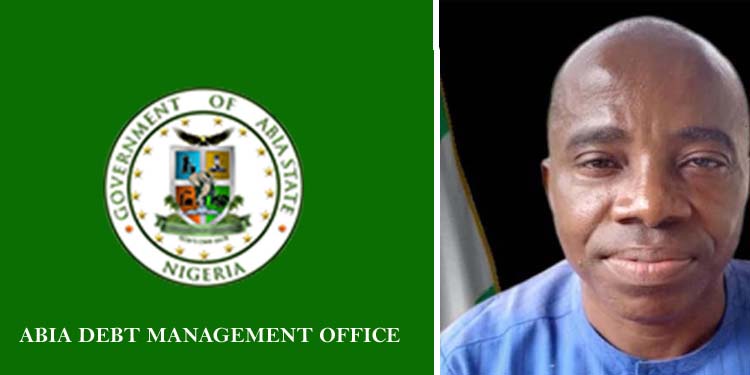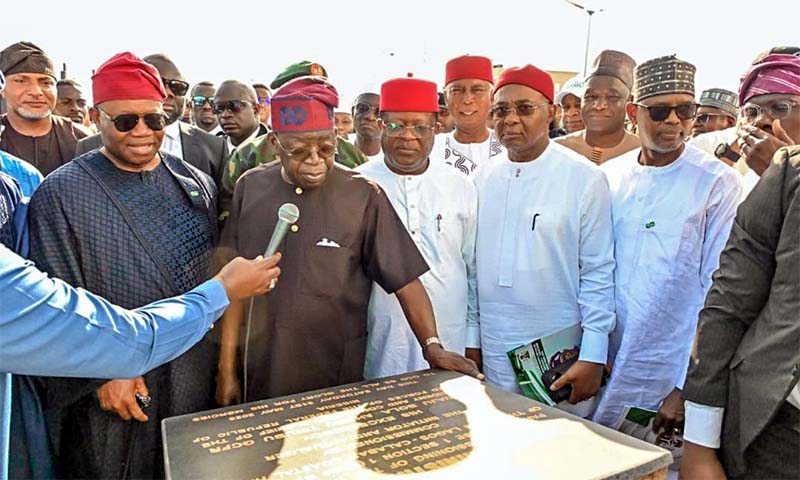An interview response from the General Manager, Abia Debt Management Office, (DMO) Dr. Benson Nwaigburu on dealing with the Administrative Challenges on profiling and managing the Abia debt burden for Administrative efficiency
“…there was no existing formal mode of financial accountability both to the people and the state, Monies were borrowed, earned but not properly accounted for” – Dr. Benson Nwaigburu
Q; 1. One of the most recurrent questions is dealing with Abia debt burden and meeting up with the promise of paying off the load of debts owed workers before the end of the year, – How do you plan to deal with this situation especially where it bothers on finance and profiling
ANS; Our administration made a promise to pay off arrears of debts owed both workers and pensioners of Abia state before the year runs out. We are keeping up faith with that but most importantly is dealing with what brought about the backlog of debts and unpaid salaries that subjected innocent people to the level of hardship and frustration they found themselves in throughout the tenure of previous administrations. There were two major kinds of debts, each with its own load of guilt and responsibilities.
There was the domestic debt comprising of salaries, pensions, gratuities, debts owed contractors running up to 42 Billion Naira and there was another kind of debt procured from international donors and financial institutions running up to 77 billion Naira and other sundry debt portfolios totaling over 191 Billion Naira, but the most intriguing part of the whole situation was the issue of profiling.
When I say profiling, it simply refers to the individuals whom were supposed to be recipient of these owed monies and infrastructure projects of which these monies were tied to.
On our resumption of office, we sat down to work only to find out that for the past eight years and more of Abia state existence there was no proper documentation of disbursement both in salaries and in projects executed, there was no harmonized payment structure in place to ascertain who is receiving what and who is been deprived, we called for a probe which led to the idea of a physical verification only to find out that what was incurred as debts were monies deliberately diverted under the guise of paying workers salary, because many of the individuals acclaimed to be receiving salaries do not exist anywhere on records.
There were incidences of bloated salary figures only to find out that the individuals whose such figures were signed in their name were actually paid half of what is in the original payroll of government, there were individuals receiving salaries in 5 to 10 different payrolls deliberately structured in favour of political patronages of the ruling elites, in most cases, records of payment histories appear shady or were non-existent and these actually complicated our work in the early stages.
The first thing we did was to assume the responsibilities of tidying up the fiscal administrative system because if we are going to keep to our promises of clearing all the debts owed workers we must do that from a harmonized list of actual government workers in existence.
Regarding finance, we are taking care of the challenges one after the other. Earlier this month we launched the Treasury Single Account (TSA) to control the loopholes and administrative abuses that led the state to incur such debt burden. In simple terms there was no existing formal mode of financial accountability both to the people and the state, Monies were borrowed, earned but not properly accounted for, leading the state to such a disorganized financial record of both the workers and infrastructure projects. We are addressing all these anomalies straight-ahead and once that is completed Abia workers will be the first beneficiary
We came to rebuild the rot we met in the system, they are huge and we are committed to doing that, we have already set the motion on how we are going to achieve success in this regard and I am very glad to tell you that they are yielding results.
Q; 2. There have been reports of discrepancies in the payment of salaries owed workers, some claimed to have received while others claimed to have been denied despite having completed the verification process. How do you reconcile such differences?
ANS; We met a very dysfunctional payroll system that I want to believe it was deliberately designed to reflect in so manner at the interest of a selected unscrupulous few. There were incidence of 3 individuals in the same level of the civil service structure but in their payroll records they were receiving different salaries, paid in different months and years, some workers has different names in their payroll list while their BVN reads something else, it was such a huge draining task to reconcile these anomalies therefore for those who are affected, it could be as a result of conflict in their registration details. All they need to do is visit the designated offices to lodge complaints rather than escalating the problem with endless complaints without seeking proper solution to the unfortunate situation.
One of the most important things that we have done is identifying the source of these problems, like I said earlier it was a result of poor fiscal administration and inefficiency of individuals engaged by previous administration to do serious work of book keeping and account management.
Q 3. A huge portion of the responsibilities of managing the deficiencies in the fiscal administration of Abia State resources falls on your shoulder, are you comfortable with the statusquo you met the office or do you have plans to do something different?
ANS; There is no way we will be comfortable with the statusquo we met Abia fiscal situation therefore we are going to introduce a drastic reforms especially in the area of Public expenditure management.
The problem with Abia Debt under Okezie Ikpeazu Administration was that it had no strategy to it. Government was simply borrowing without a clear plan on what should be the impact of the debt on development or how to pay back on a sustainable basis. That was why the debt bunched together and become unsustainable.
All that is going to change under the Dr. Alex Oti led administration.
We have a plan to upgrade the debt management office to an Agency with trained professionals to manage debt. Currently, that function is scattered in other ministries and agencies.
Another major reform is that the Government will develop a debt Management Policy Framework which will guide policy makers on how to manage Abia public debt.
The other aspect of the reform we are planning is that there will be medium-term debt management strategy ( 2024-2027) to ensure the achievement of debt policy objectives. Once we are done with these reforms and the reforms of internally generated revenue begins to bear fruit, Abia debt will be managed professionally and in a way that it will not constrain the state from borrowing more to finance development.
Q 4. The workforce drives the economy and administrative strength of the state, unfortunately it appears this is where Abia state have suffered the most complicated outcomes in governance – Do you have any plan to make sure workers are no longer owed unnecessarily, at least, to enhance performance in office
ANS; The physical verification exercises for all civil servants in the state thatthis administration has introduced in our early days in office is going to deal with that aspect of administration, once the proper record is put in place, every Abia state worker will be very proud with the reforms this administration is putting in place to address this unwholesome practice of owing workers who have devoted their time and energy to business of governance. It is a promise we have made and we are resolved to fulfill it, in response workers are encouraged to give in their best as those days of negligence to duty will no longer be accommodated under the effective management system we are putting in place
Thank you






